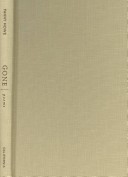New California Poetry
2 primary works
Book 3
One of the best and most respected experimental poets in the United States, Fanny Howe has published more than twenty books, mostly with small presses, and this publication of her selected poems is a major event. Howe's theme is the exile of the spirit in this world and the painfully exciting, tiny margin in which movement out of exile is imaginable and perhaps possible. Her best poems are simultaneously investigations of that possibility and protests against the difficulty of salvation. Boston is the setting of some of the early poems, and Ireland, the birthplace of Howe's mother, is the home of O'Clock, a spiritually piquant series of short poems included in Selected Poems. The metaphysics and the physics of this world play off each other in these poems, and there is a toughness to Howe's unique, fertile nervousness of spirit. Her spare style makes a nest for the soul: Zero built a nest in my navel. Incurable Longing. Blood too-- From violent actions It's a nest belonging to one But zero uses it And its pleasure is its own --from The Quietist
Book 7
This collection of new poems by one of the most respected poets in the United States uses motifs of advance and recovery, doubt and conviction - in an emotional relation to the known world. Heralded as 'one of our most vital, unclassifiable writers' by the "Voice Literary Supplement", Fanny Howe has published more than twenty books and is the recipient of the Gold Medal for Poetry from the Commonwealth Club of California. In addition, her "Selected Poems" received the 2001 Lenore Marshall Poetry Prize for the Most Outstanding Book of Poetry Published in 2000 from the Academy of American Poets. The poems in "Gone" describe the transit of a psyche, driven by uncertainty and by love, through various stations and experiences. This volume of short poems and one lyrical essay, all written in the last five years, is broken into five parts; and the longest of these, "The Passion," consecrates the contradictions between these two emotions. "The New York Times Book Review" said, 'Howe has made a long-term project of trying to determine how we fit into God's world, and her aim is both true and marvellously free of sentimental piety'.
With "Gone", readers will have the opportunity to experience firsthand Howe's continuation of that elusive and fascinating endeavor.
With "Gone", readers will have the opportunity to experience firsthand Howe's continuation of that elusive and fascinating endeavor.

